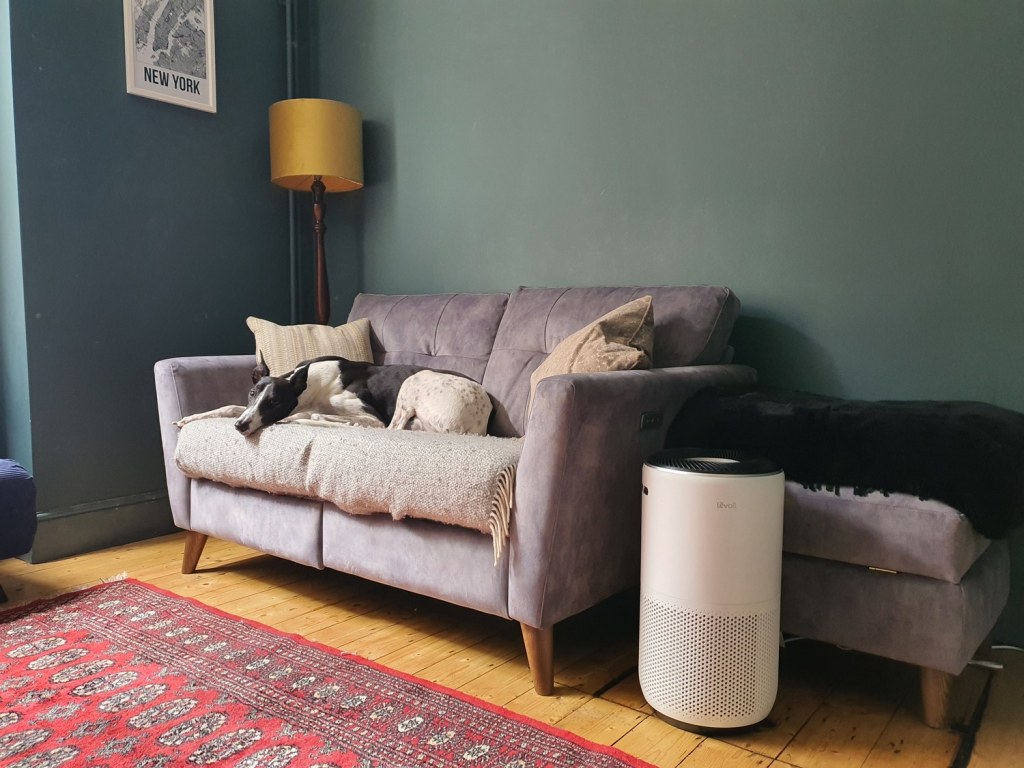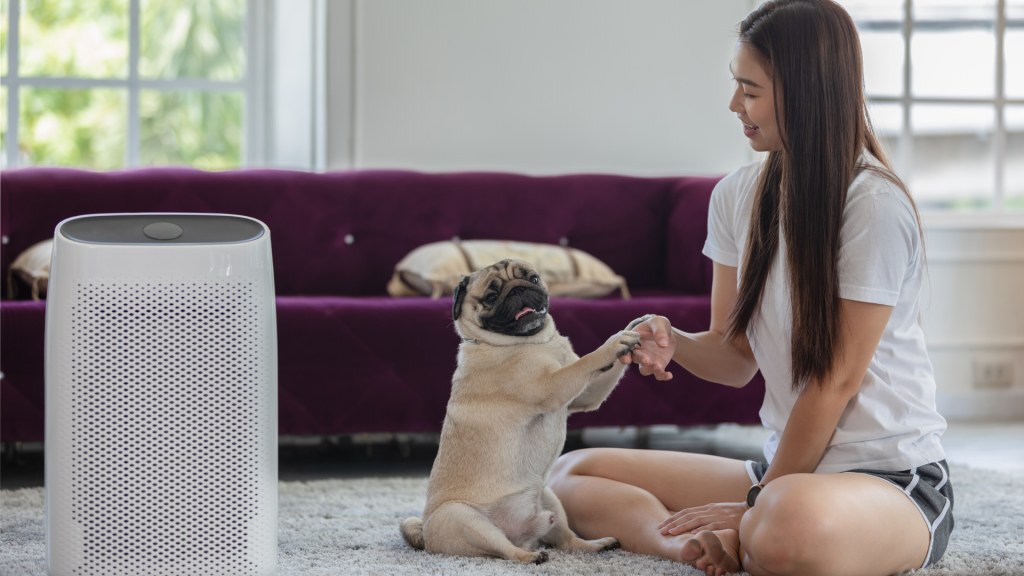Discover The Truth: Are Ionic Air Purifiers Safe For Pets? Find Out Now!
Are Ionic Air Purifiers Safe for Pets?
Pets Lover, if you are concerned about the air quality in your home and the health of your furry friends, you may have come across ionic air purifiers as a potential solution. These devices claim to remove pollutants from the air using negative ions, but are they safe for your pets? In this article, we will delve into the topic of ionic air purifiers and their impact on your beloved pets.
Introduction
1. Understanding Ionic Air Purifiers
3 Picture Gallery: Discover The Truth: Are Ionic Air Purifiers Safe For Pets? Find Out Now!



2. How Ionic Air Purifiers Work

Image Source: cutenesscdn.com
3. The Importance of Air Quality for Pets
4. Common Air Pollutants in Homes

Image Source: housefresh.com
5. The Need for Pet-Friendly Air Purifiers
6. Evaluating the Safety of Ionic Air Purifiers

Image Source: futurecdn.net
7. Addressing Concerns About Ionic Air Purifiers
What Are Ionic Air Purifiers?
Ionic air purifiers, also known as ionizers, are devices designed to improve indoor air quality by releasing negative ions into the air. These negatively charged ions attach themselves to airborne pollutants, such as dust, pollen, and pet dander, causing them to become heavy and fall to the ground or stick to surfaces. As a result, the air is supposedly cleaned and purified.
However, it is important to note that ionic air purifiers do not physically filter the air like traditional air purifiers. They simply change the charge of particles in the air, making them less likely to remain suspended in the atmosphere.
How Do Ionic Air Purifiers Work?
Ionic air purifiers operate by emitting negative ions into the air. These ions are created by an internal mechanism that produces an electrical charge. As the ions disperse, they attach to positively charged particles in the air, causing them to clump together and fall to the ground. Some ionic air purifiers also have collection plates or filters that can trap these particles, preventing them from being released back into the air.
This process is intended to reduce the concentration of pollutants in the air, alleviating symptoms of allergies, asthma, and other respiratory issues. However, the effectiveness of ionic air purifiers in achieving significant air purification remains a topic of debate among experts.
The Importance of Air Quality for Pets
Air quality plays a crucial role in the overall health and well-being of pets, just as it does for humans. Pets, especially those that spend a significant amount of time indoors, are vulnerable to the harmful effects of indoor air pollution. Common air pollutants, such as dust, pet dander, mold spores, and volatile organic compounds (VOCs), can trigger respiratory problems, allergies, and other health issues in pets.
By improving the air quality in your home, you can create a safer and healthier environment for your pets to thrive in. This is where air purifiers, including ionic air purifiers, come into play.
Common Air Pollutants in Homes
It is essential to understand the common air pollutants that can be found in homes and may affect the health of your pets. Some of these pollutants include:
1. Dust and dust mites
2. Pet dander and hair
3. Pollen
4. Mold and mildew spores
5. Chemicals and VOCs from cleaning products, furniture, and other household items
These pollutants can accumulate over time and circulate in the air, posing a risk to both humans and pets.
The Need for Pet-Friendly Air Purifiers
When choosing an air purifier for your home, it is important to consider the specific needs of your pets. Some air purifiers, including certain types of ionic air purifiers, may produce ozone as a byproduct. Ozone is a gas that can be harmful to pets, particularly those with respiratory conditions, such as asthma or chronic obstructive pulmonary disease (COPD).
Therefore, it is crucial to select air purifiers that are labeled as pet-friendly or ozone-free. These purifiers are designed to effectively remove pollutants from the air without emitting harmful ozone levels. Pet-friendly air purifiers prioritize the health and safety of your furry companions while still providing clean and fresh air.
Evaluating the Safety of Ionic Air Purifiers
When it comes to the safety of ionic air purifiers for pets, there are several factors to consider:
1. Ozone Emission: As mentioned earlier, some ionic air purifiers produce ozone as a byproduct. High levels of ozone can be harmful to pets. It is crucial to choose an ionic air purifier that does not emit ozone or produces it within safe limits.
2. Particle Removal: While ionic air purifiers can effectively remove certain pollutants from the air, they may not be as efficient as traditional filter-based purifiers in capturing smaller particles, such as viruses and bacteria. This can be a concern if you have pets with compromised immune systems or if you live in an area with high pollution levels.
3. Maintenance: Ionic air purifiers require regular maintenance to ensure optimal performance. This includes cleaning the collection plates or filters to prevent the buildup of trapped particles. Failure to maintain the purifier properly can result in reduced effectiveness and potential health risks.
4. Noise Levels: Some ionic air purifiers can be noisy, which may cause stress or anxiety in pets, especially those with sensitive hearing. It is advisable to choose a purifier with adjustable fan speeds or a noise-reduction feature to minimize disturbance.
Addressing Concerns About Ionic Air Purifiers
Despite the potential benefits of ionic air purifiers, there are concerns about their overall effectiveness and safety for pets. Critics argue that these devices may not significantly improve air quality and may even release harmful byproducts, such as ozone, into the environment.
It is important to note that scientific studies on the effectiveness and safety of ionic air purifiers have provided mixed results. While some studies suggest that these purifiers can reduce airborne particles, others indicate that their impact on air quality is minimal.
Additionally, the American Lung Association and the Environmental Protection Agency (EPA) do not endorse or recommend ionic air purifiers as a primary means of improving indoor air quality. They emphasize the importance of proper ventilation, source control, and the use of certified high-efficiency particulate air (HEPA) filters for optimal air purification.
To make an informed decision about whether or not to use ionic air purifiers in your home, it is recommended to consult with your veterinarian and consider the specific needs and health conditions of your pets.
Advantages and Disadvantages of Ionic Air Purifiers
Advantages:
1. Low energy consumption: Ionic air purifiers are generally energy-efficient, resulting in lower electricity bills.
2. Silent operation: Unlike some traditional air purifiers, ionic air purifiers produce minimal noise, making them suitable for use in bedrooms and other quiet spaces.
3. No filter replacement: Ionic purifiers do not require regular filter replacements, reducing long-term maintenance costs.
Disadvantages:
1. Limited particle removal: Ionic air purifiers may not effectively remove smaller particles, such as viruses and bacteria, from the air.
2. Ozone emission: Some ionic air purifiers emit ozone as a byproduct, which can be harmful to pets with respiratory conditions.
3. Regular maintenance: Cleaning the collection plates or filters of ionic air purifiers is essential for optimal performance and to prevent health risks.
Frequently Asked Questions (FAQ)
1. Can ionic air purifiers remove pet odors?
Yes, ionic air purifiers can help reduce pet odors by neutralizing the particles responsible for the smell. However, it is important to address the underlying cause of the odor, such as keeping the pet’s environment clean and practicing proper pet hygiene.
2. Are there any risks of using ionic air purifiers around birds?
Yes, ionic air purifiers can be harmful to birds. Birds have highly sensitive respiratory systems and are particularly susceptible to the negative effects of ozone, which some ionic air purifiers emit. It is best to avoid using these purifiers in areas where birds are present.
3. Can ionic air purifiers alleviate pet allergies?
Ionic air purifiers may provide some relief for pet allergies by reducing the level of airborne pet dander and other allergens. However, it is important to note that individual sensitivities may vary, and other measures, such as regular cleaning and grooming of pets, should also be implemented.
4. Are there any alternatives to ionic air purifiers for pet-friendly homes?
Yes, there are alternative air purifiers that are considered pet-friendly, such as HEPA filters. These filters are highly efficient in removing airborne pet dander, pollen, and other allergens. It is recommended to choose an air purifier that is specifically designed for pet owners and addresses the unique needs of pets.
5. Can ionic air purifiers be used in homes with multiple pets?
Yes, ionic air purifiers can be used in homes with multiple pets. However, it is important to choose a purifier that is suitable for the size of the room and the number of pets present. Regular maintenance and cleaning of the purifier are also essential to maintain its effectiveness.
Conclusion
Pets Lover, the safety and effectiveness of ionic air purifiers for pets remain a topic of debate. While these purifiers may provide some benefits, it is crucial to consider the specific needs and health conditions of your pets before making a decision. Consult with your veterinarian and explore alternative options, such as HEPA filters, to ensure the best air quality for your beloved furry friends.
By prioritizing clean air and creating a pet-friendly environment, you can contribute to the overall health and well-being of your pets. Remember, their health is in your hands!
Final Remarks
The information provided in this article is intended for informational purposes only and should not be considered as a substitute for professional advice. Always consult with your veterinarian or a qualified expert before making any decisions regarding the health and safety of your pets. The use of ionic air purifiers should be done with caution and in accordance with the manufacturer’s instructions.
This post topic: Pets


